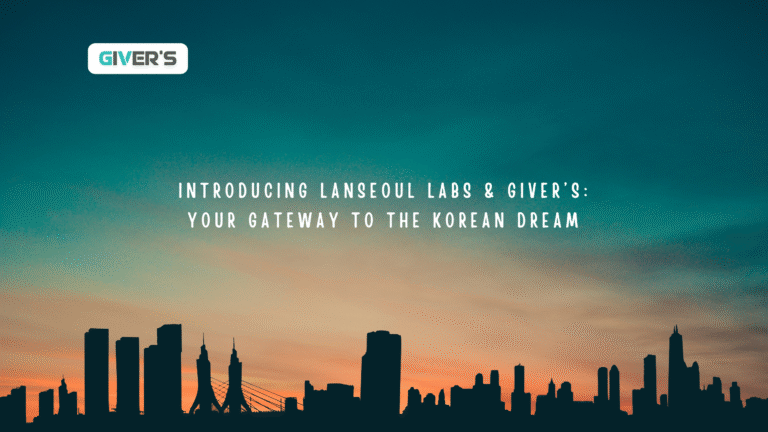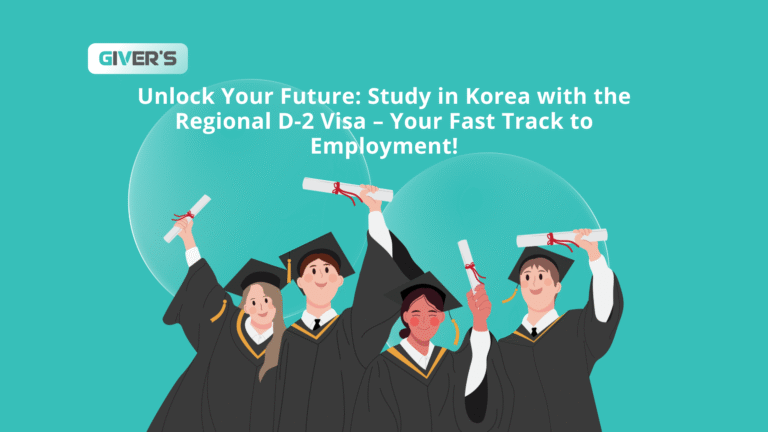Researching the Korean Dream: The R&D Vision of LanSeoul Labs
Every year, thousands of Sri Lankans dream of going to South Korea — and many of them are already on waiting lists to do so, primarily under the E-9 visa scheme through the Employment Permit System (EPS). For many, this path represents a life-changing opportunity to work, earn, and support their families. But today, we’re also seeing new migration routes begin to emerge — driven by shifts in Korea’s labor market and demographic needs.
One of these emerging pathways is higher education, which we believe holds immense untapped potential for Sri Lankan youth. It not only creates long-term personal growth but may also open doors to more diverse, skilled job opportunities in Korea and beyond. At LanSeoul Labs, we see ourselves as more than just a technology provider. We are a catalyst for dreams — and we know that meaningful solutions must be grounded in real-world understanding. That’s why research and development (R&D) is at the heart of what we do.
Why We Do R&D
We are committed to engaging in long-term research and development focused on deepening our understanding of the Sri Lanka–Korea labor and education mobility landscape. As a technology provider working to empower Sri Lankan youth to realize their Korean dream—whether through work, education, or both—we recognize that meaningful innovation must be grounded in insight.
Our R&D efforts aim to explore the multifaceted dimensions of this ecosystem: from the aspirations and challenges of Sri Lankan workers and students, to the expectations and needs of Korean employers, and the roles played by institutional stakeholders on both sides—from SLBFE and the Ministry of Labor in Sri Lanka to HRD Korea and Korean labor authorities. These insights will guide our product development and also be shared publicly to support broader dialogue, policy, and practice.
We welcome collaboration with academic institutions, civil society organizations, and public or private partners—both in Sri Lanka and Korea—as we believe that working together creates shared value and leads to solutions that benefit all involved.
Key Research Themes
Here are the core areas we’re focusing on through our R&D work. These are not static — we fully expect new and unexpected questions to emerge as we engage more deeply with communities, data, and institutions.
1. Sri Lankan Aspirants – Youth, Students & Workers
- Motivations and expectations of youth seeking Korean opportunities
- Access to and quality of Korean language training (urban–rural gaps, delivery models)
- Readiness levels for EPS and higher education pathways
- Barriers to entry: financial, informational, or institutional
- Returnee experiences: reintegration, re-migration intent, and skills usage
- Gender dynamics in the migration journey
2. Korean Employers & Industry Expectations
- Labor market demand by sector: where are the jobs, and what are the skills gaps?
- Employer perceptions of Sri Lankan workers and students
- Retention, satisfaction, and performance factors
- Gaps in cultural or workplace readiness among incoming workers
- Employer interest in long-term or skilled worker pathways
3. Policy & Institutional Ecosystem
- How well the EPS system is working in practice
- Role and performance of intermediary institutions (SLBFE, HRD Korea, training centers)
- Comparative analysis of public vs. private Korean language training providers
- Coordination (or lack thereof) between Sri Lanka and Korean authorities
- Opportunities to enhance transparency and trust across the system
4. Technology, Access & Innovation
- Digital access and tech literacy among aspirants
- Effectiveness of existing digital tools for language, training, and job matching
- Feasibility of mobile-based pre-departure orientation or mentorship platforms
- Data-driven early warning or planning tools for migration flows
- User-centered design for tech tools that simplify the EPS journey
5. Cross-Border Collaboration & Learning
- Sri Lanka–Korea academic or institutional collaboration potential
- Lessons from other sending countries (e.g., Vietnam, Nepal, Philippines)
- Diaspora engagement in worker integration and advocacy
- Multi-country research models for policy learning and innovation
6. Emerging & Exploratory Themes
- We also leave room for serendipity. Some topics are still forming but may prove crucial:
- Social media’s role in shaping migration decisions — and spreading misinformation
- Mental health and emotional well-being during migration cycles
- Skills recognition, upskilling, and career mobility post-return
- Using Korea-earned capital for entrepreneurship or social reintegration
Why This Work Matters
This research isn’t just for internal use. We aim to publish insights and build shared knowledge that can:
- Support policy reform and practical improvements in the EPS and study visa systems
- Guide product development for smarter, more relevant technology tools
- Foster collaboration between governments, employers, and civil society
- Empower Sri Lankan youth with better information and clearer pathways
By understanding the why, how, and what’s missing in this system, we believe we can help make migration to Korea safer, smarter, and more sustainable.
Let’s Build This Together
We’re calling on:
- Sri Lankan universities interested in migration, labor, or education research
- Korean institutions seeking grassroots insight into worker preparation
- Civil society actors who want to use data for advocacy or support
- Public or private entities ready to co-create with purpose
Whether you’re researching, policymaking, or building, we’d love to connect. Let’s ensure the Korean dream is not just possible — but informed, equitable, and shared.
📬 Interested in collaborating? Reach out to us at:
📧 contactus@lanseoullabs.lk


